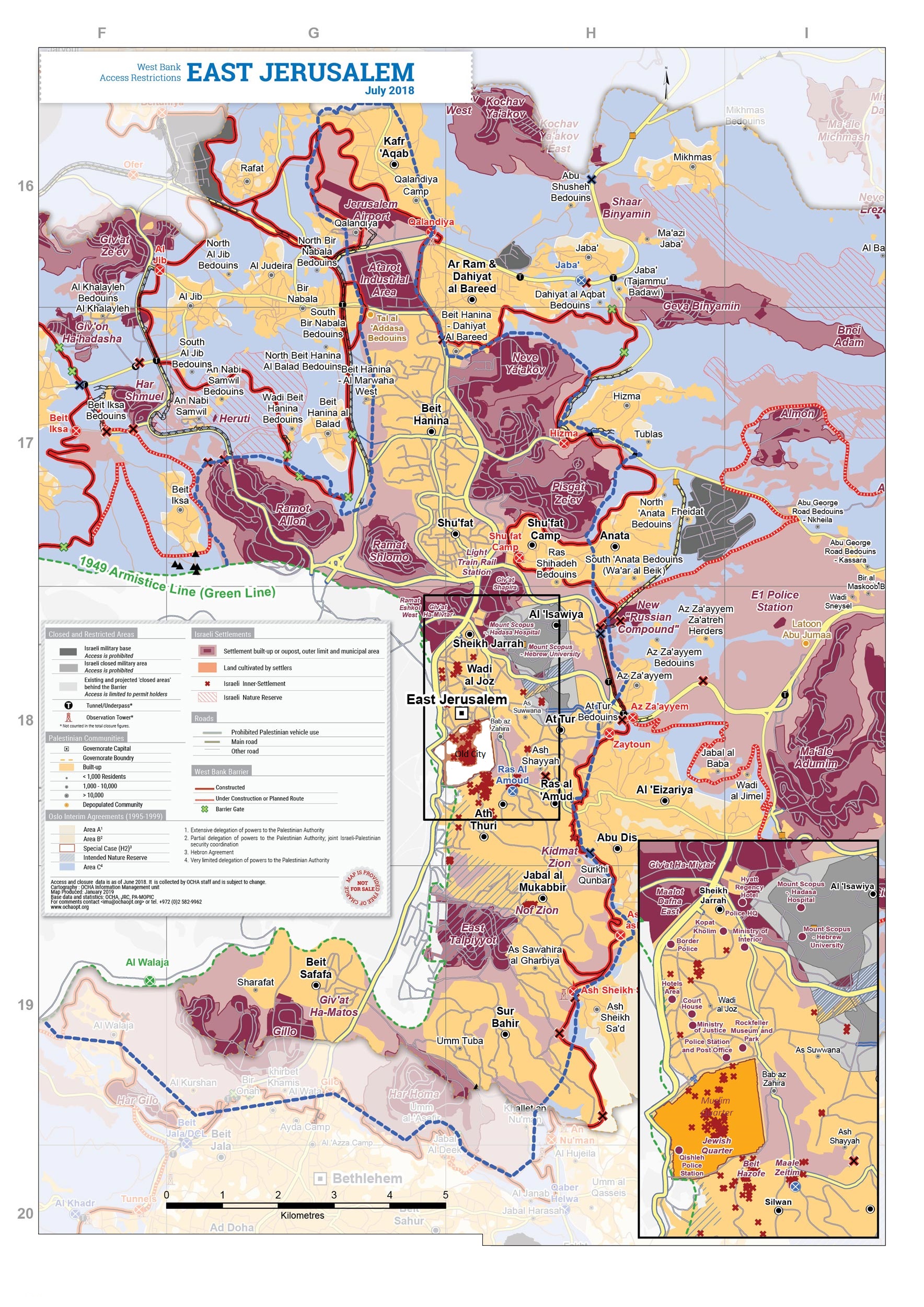Israel Requests Bids for New Settlement in East Jerusalem
Opponents of controversial Givat Hamatos say plan would mean the end of a two-state solution.

The opening of bids for construction of 1,200 new homes in a sensitive area of East Jerusalem comes during a “fascinating” confluence of a number of factors both in Israel and the United States.
So says Eli Sperling, postdoctoral associate in Asian and Middle Eastern Studies in the Center for Jewish Studies at Duke University in Durham, N.C. Sperling is formerly the senior academic research coordinator at the Institute for the Study of Modern Israel at Emory University in Atlanta. The two most important factors, he said, are the fact that President Donald Trump’s administration is on its way out, and that Prime Minister Benjamin Netanyahu is embattled by both the coronavirus pandemic and his political situation as his corruption trial is scheduled to begin in January.
The new neighborhood, called Givat Hamatos, was “part of Netanyahu’s February electoral campaign before the March elections. The plan fell apart and has now re-emerged as Trump is leaving” the White House, Sperling said. The Israel Land Authority issued the call for tenders on Nov. 15, with the final date for submitting them on Jan. 18, 2021, two days before President-elect Joe Biden’s inauguration.
According to Israeli media, if the government signs a contract at the close of bidding, it would make it more difficult to reverse course on the project, even under pressure of a new U.S. administration, Sperling added.

The plan for Givat Hamatos, which would surround the Palestinian town of Beit Safafa, was originally proposed in 2012, Sperling said. But the idea was put on ice due to strong international opposition, led by former President Barack Obama. Opponents of the settlement contend that it would negate the possibility of a Palestinian state with territorial contiguity.
Indeed, after the bidding process was announced, the Israeli organization Peace Now said that construction in this area would deal a “lethal blow” to a two-state solution. “The government, which was established to tackle the coronavirus crisis, is taking advantage of the twilight days of the Trump administration to create facts on the ground,” the anti-occupancy group stated.
The area which is planned for the southern part of East Jerusalem – east of Gilo and southeast of Beit Safafa – “would create a ring of Jewish neighborhoods” around Beit Safafa. “Any settlement construction in the West Bank or East Jerusalem is controversial,” he said, but the timing isn’t coincidental.
“The Netanyahu government sees the last days of Trump as an opportunity,” Sperling said. During the last four years, President Trump has been neutral about settlements. But according to Israeli public broadcaster, Kan, Netanyahu was to ask for the administration’s support for Givat Hamatos from U.S. Secretary of State Mike Pompeo, who visited Israel just days after the tender bids were announced.

Earlier this year, Netanyahu also raised the possibility of annexing some of the West Bank. That idea was dropped in exchange for the diplomatic agreements Israel reached with the United Arab Emirates and Bahrain. Sperling said he doesn’t believe that the two Arab countries will advocate for the Palestinians and fight the building in Givat Hamatos. “They have more pressing strategic interests,” he suggested.
However, he also argued with opponents of the new settlement who say that it would necessarily be irreversible. History, he said, proves otherwise. In 1982, at the completion of the 1979 peace agreement with Egypt, Israel destroyed its own settlements in the Sinai and forcibly pulled out its residents. In 2005, Israel tore down its settlements in Gaza and again used force to remove those living there.
Both disengagements were carried out by right-wing leaders: in 1982, it was Prime Minister Menachem Begin, and in 2005, it was Prime Minister Ariel Sharon. “So, it’s possible to be done again,” said Sperling. “There’s historic precedent.”
- Jan Jaben-Eilon
- Israel
- World
- East Jerusalem
- Givat Hamatos
- Two-State Solution
- Eli Sperling
- Middle East
- Benjamin Netanyahu
- Donald Trump
- The White House
- Israel Land Authority
- Joe Biden
- Beit Safafa
- Palestinian
- Barack Obama
- Gilo
- Mike Pompeo
- Secretary of State
- West Bank
- United Arab Emirates
- Bahrain
- Egypt
- Sinai
- Ariel Sharon



comments